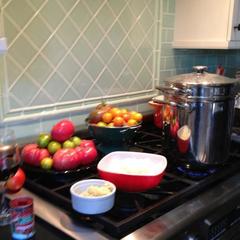-
Welcome to the eG Forums, a service of the eGullet Society for Culinary Arts & Letters. The Society is a 501(c)3 not-for-profit organization dedicated to the advancement of the culinary arts. These advertising-free forums are provided free of charge through donations from Society members. Anyone may read the forums, but to post you must create a free account.
Chicken Stock Breakthrough!
-
Similar Content
-
- 6 replies
- 572 views
-
- 91 replies
- 36,319 views
-
- 13 replies
- 9,513 views
-
- 49 replies
- 16,766 views
-
- 7 replies
- 1,717 views
-
-
Recently Browsing 0 members
- No registered users viewing this page.




Recommended Posts